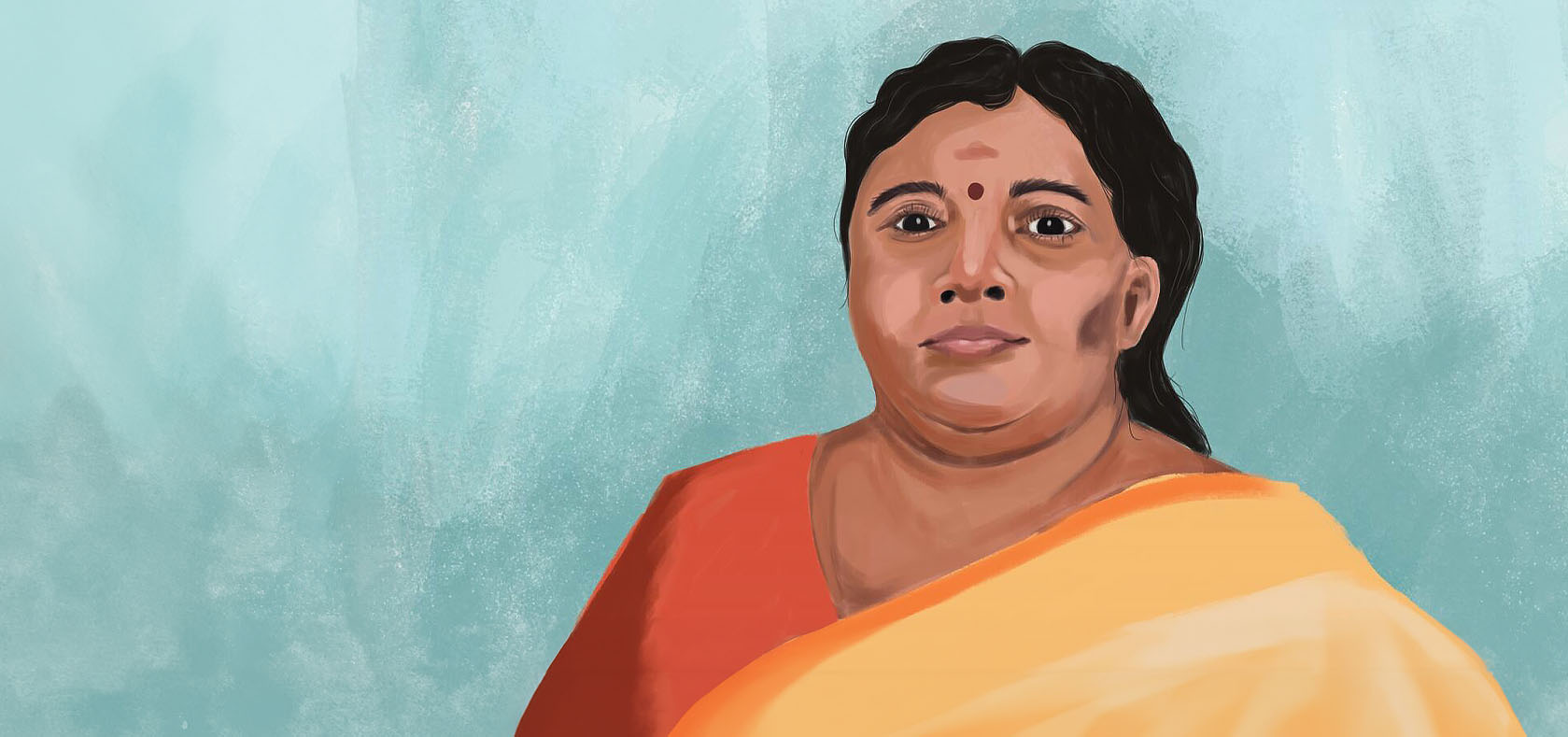In the words of P. Logeswary: “I will continue to fight for the rights of my people”
Date:

P. Logeswary is the Programme Coordinator of the Human Development Organization in Sri Lanka. Her work includes advancing the rights of women and children from the Malaiyaga Tamil community in the plantation sector. On the occasion of the International Day for Women Human Rights Defenders, she spoke about her work as a human rights defender in her country.

When I was eight years old, my house was burned down during the ethnic riots, and I missed school for over three months. Ten years later, I attended workshops by women’s rights activists in the country. They inspired me, and for the last 25 years, I have devoted my life to activism on behalf of women, children, minorities and people in the plantation sector.
The Malaiyaga (a hill country Tamil community) has a 200-year history in Sri Lanka and despite making up over 4.7 percent of the country’s population, they continue to face a host of challenges.
Based on available data, at least 67 percent of the community still live in congested ‘line rooms’ established by colonial British planters. We must improve their living standards by abolishing the line room system and creating a strong housing plan with opportunities for land ownership.
Similarly, while 200 years have passed, the plantation sector health system has still not been fully integrated into the national health system. Equal access to healthcare is needed. At a policy level, changes have been made, yet these are vulnerable to alteration when systems change.
Another key issue facing the community is that nearly 8,000 people have lost their Employees' Trust Fund and Provident Fund money due to policy changes. A lot of people begin working at 14 or 15 years old and depend on that money for retirement. Many have passed away, yet their children cannot access that money. We filed a case at the Human Rights Commission, and they are now beginning to receive it.
“Sri Lanka should have a women’s commission and minority commission. They should be able to make direct complaints and secure justice. I am lobbying to make this happen ...”
— P. Logeswary, Programme Coordinator, Human Development Organization in Sri Lanka
Language rights also remain unfulfilled. For instance, while people in the Nuwara Eliya District are mostly Tamil speaking, medical officers are mainly Sinhala speaking. This makes it difficult for them to convey their health issues accurately. Even medicine containers do not have information in Tamil. In public transport too, Tamil is not often used. Consider the plight of a woman working in the informal sector in Colombo. How will she recognise her bus to travel home if the bus sign is not in Tamil? Three languages should be used everywhere. These basic rights should be recognised by the state and private sector.
With the ongoing crises, early marriage and teenage pregnancies have also increased as schools closed and the economic crisis prompted parents to marry off their daughters of just 16 or 17 years. Child labour too started to increase again.
The state needs to monitor and support parents in overcoming hardships, and create economic opportunities. Equal access to education is important to enable generational progress through government or corporate jobs. In the plantation sector, the caste system also remains to be a challenge and because of this, many are voiceless with low bargaining power.
Sri Lanka has signed a number of international agreements including the Convention on the Elimination of All Forms of Discrimination Against Women (CEDAW) and the Universal Declaration of Human Rights. These must be implemented at the local level to overcome the hardships of people in the plantation sector.
The Human Development Organization was established in 1990 by young plantation development workers. We lobby and advocate for policy changes to improve their living standards.
In 2003, Sri Lanka granted citizenship to 300,000 stateless people from the plantation sector. This was the culmination of decades of advocacy and lobbying on citizenship rights, with the support of civil society. It is the biggest milestone of our work.
We also engage in grassroots level mobilisation, particularly with women and youth. I personally oversee all programmes with an emphasis on the needs and challenges of women and children.
During the pandemic, we supported 350 to 500 small entrepreneurs to cultivate their own food. This is invaluable because when women are equipped to earn, they do not have to depend on others and can make their own decisions.
Sri Lanka should have a women’s commission and minority commission. They should be able to make direct complaints and secure justice.
I am lobbying to make this happen.
In my lifetime, I need to do something for my people, so I will continue to fight for their rights.”
“In Sri Lanka, women human rights defenders have a strong legacy of shaping governance and peace, and advocating for the rights of the most marginalized. In February 2023, Sri Lanka adopted its first National Action Plan on Women, Peace and Security with support from the Government of Japan and UN Women. Through our work in advancing the women, peace and security agenda in Sri Lanka, UN Women calls for greater participation and representation of women in peace and security efforts”.